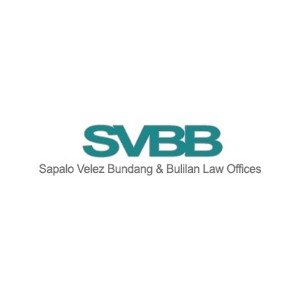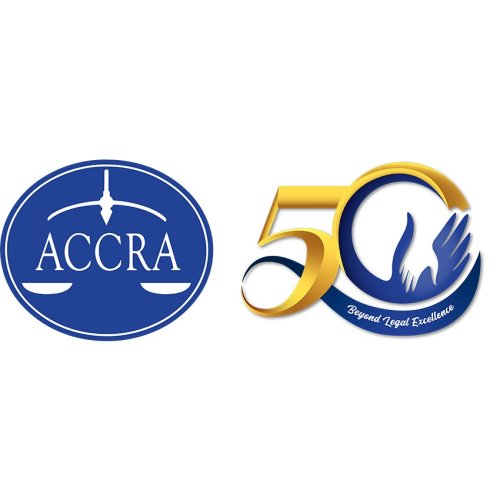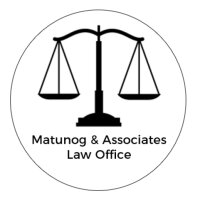Best Business Lawyers in Davao City
Share your needs with us, get contacted by law firms.
Free. Takes 2 min.
List of the best lawyers in Davao City, Philippines
Philippines Business Legal Questions answered by Lawyers
Browse our 4 legal questions about Business in Philippines and read the lawyer answers, or ask your own questions for free.
- Where can we have papers notarized?
- Affidavit of auto deduct from our company. We will just need to have 2papers be notarized.
-
- Transfer little business to Philippines
- Hello, I am in Germany and would like to move to the Philippines in a few years. I have an apartment there as an investment and am currently running a part-time T-shirt print-on-demand business, which earns me around €500 per month. Unfortunately, there is not much left over due to... Read more →
-
Lawyer answer by Law Office Attorney SVETISLAV STOJANOSKI, LL.M.
You can do the same in Macedonia even the taxes are the lowest in Europe (and in EU), you can also be the owner and manager of your company registered in Macedonia without living in Macedonia. If you want me...
Read full answer - USA Owned Corporation call center
- I need to get a Corporation set up in the Philippines. Myself and my lawyer here in the USA want to start a call center for passing information between Lawyers and Doctors in The USA. We will only employ Filipino Employees. I will be be CEO and President of the... Read more →
-
Lawyer answer by Atty. Rainier Mamangun
Our Law Firm, established in 2004, has been providing services to a multitude of clients in the areas of Company Formation, Corporate Services, Mergers & Acquisitions, Corporate Finance & Securities, Information Technology, Labor Relations & Employment, Litigation & Dispute Resolution,...
Read full answer
Philippines Business Legal Articles
Browse our 1 legal article about Business in Philippines written by expert lawyers.
- Managing Labor Inspections for BPOs in the Philippines
- Managing Labor Inspections for BPO Companies in the Philippines The Department of Labor and Employment (DOLE) conducts unannounced inspections to verify compliance with General Labor Standards and Occupational Safety and Health standards. BPO companies must maintain meticulous payroll records covering the past three years to prove payment of night shift... Read more →
About Business Law in Davao City, Philippines
Davao City, located in the southern part of the Philippines, is a bustling economic hub known for its conducive business environment. Business law in Davao City encompasses various legal regulations and requirements that govern the establishment, operation, and closure of businesses. It aims to foster fair competition, protect consumer rights, and ensure compliance with local and national regulations.
Why You May Need a Lawyer
There are several situations where seeking legal advice from a lawyer specializing in business law in Davao City can be beneficial. Some common scenarios include:
- Starting a new business and needing guidance on obtaining necessary permits and licenses
- Negotiating contracts and agreements with suppliers, clients, or business partners
- Handling employment-related issues such as drafting employment contracts, resolving disputes, or ensuring compliance with labor laws
- Facing legal disputes, including breach of contract or intellectual property infringement
- Considering business restructuring, mergers, or acquisitions
Local Laws Overview
Understanding the key aspects of local laws that are particularly relevant to business in Davao City is crucial. Some important areas to consider include:
- The Davao City Business Licensing and Regulation Office (BLRO) oversees the issuance of business permits and licenses.
- Businesses must comply with the Davao City Revenue Code, which outlines local tax obligations and procedures.
- Employment laws in Davao City adhere to the Philippine Labor Code, which covers aspects such as minimum wage, working hours, leave entitlements, and termination procedures.
- Intellectual property laws protect trademarks, patents, and copyrights of businesses in Davao City.
- Businesses must adhere to consumer protection laws to ensure fair business practices and protect consumers' rights.
Frequently Asked Questions
1. What permits and licenses are required to start a business in Davao City?
Starting a business in Davao City typically requires obtaining a Mayor's Permit, Business Permit, and Barangay Clearance. However, the specific permits and licenses may vary depending on the nature of your business. It is advisable to consult with a lawyer or the Davao City BLRO to ensure compliance.
2. How can I protect my business ideas and intellectual property in Davao City?
To protect your business ideas and intellectual property in Davao City, you can register trademarks with the Intellectual Property Office of the Philippines. Additionally, you can apply for patents or copyright protection for unique inventions or creative works related to your business.
3. Are there any local regulations regarding employment in Davao City?
Yes, employment in Davao City is governed by the Philippine Labor Code. This includes provisions on minimum wage, working hours, leave entitlements, employee benefits, and termination procedures. It is important for businesses to comply with these regulations to avoid legal issues.
4. What should I do if I encounter a contractual dispute with another business or client?
If you encounter a contractual dispute in Davao City, it is advisable to seek legal advice from a business lawyer. They can help review the contract, assess your rights and obligations, and guide you through dispute resolution options, such as negotiation and mediation.
5. How can I ensure compliance with local tax obligations for my business?
To ensure compliance with local tax obligations in Davao City, it is recommended to consult with a tax lawyer or a certified public accountant. They can assist in understanding and fulfilling your tax obligations, including registration, filing tax returns, and paying the required taxes.
Additional Resources
For further information and assistance related to business law in Davao City, you can refer to the following resources:
- Davao City Business Licensing and Regulation Office (BLRO) - Official government body responsible for issuing permits and licenses.
- Davao City Chamber of Commerce and Industry - A non-profit organization providing support and resources to businesses in the city.
- Department of Trade and Industry (DTI) Davao Region - Government agency offering programs and services to support local businesses.
- Intellectual Property Office of the Philippines - Provides guidance and assistance for registering and protecting intellectual property rights.
Next Steps
If you require legal assistance for your business in Davao City, it is recommended to:
- Identify the specific issue or concern you need assistance with.
- Research and shortlist reputable business lawyers in Davao City who specialize in the relevant area of law.
- Arrange initial consultations with the selected lawyers to discuss your situation and assess their expertise.
- Select a lawyer who understands your needs and has a track record of success in handling similar cases.
- Engage the services of the chosen lawyer, follow their advice, and provide them with all relevant information and documents to support your case.
Lawzana helps you find the best lawyers and law firms in Davao City through a curated and pre-screened list of qualified legal professionals. Our platform offers rankings and detailed profiles of attorneys and law firms, allowing you to compare based on practice areas, including Business, experience, and client feedback.
Each profile includes a description of the firm's areas of practice, client reviews, team members and partners, year of establishment, spoken languages, office locations, contact information, social media presence, and any published articles or resources. Most firms on our platform speak English and are experienced in both local and international legal matters.
Get a quote from top-rated law firms in Davao City, Philippines — quickly, securely, and without unnecessary hassle.
Disclaimer:
The information provided on this page is for general informational purposes only and does not constitute legal advice. While we strive to ensure the accuracy and relevance of the content, legal information may change over time, and interpretations of the law can vary. You should always consult with a qualified legal professional for advice specific to your situation.
We disclaim all liability for actions taken or not taken based on the content of this page. If you believe any information is incorrect or outdated, please contact us, and we will review and update it where appropriate.
Browse business law firms by service in Davao City, Philippines
Davao City, Philippines Attorneys in related practice areas.












